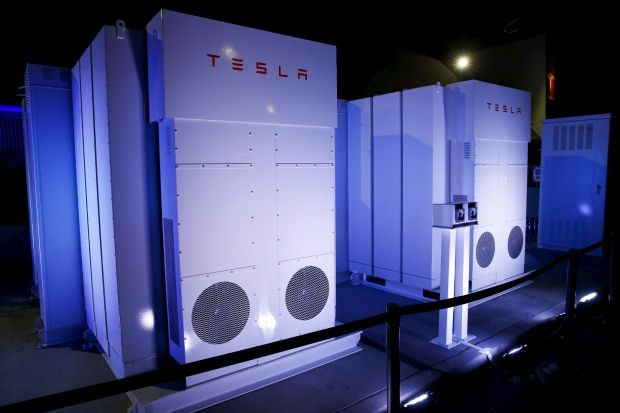Tesla Motors CEO Elon Musk: Powerwall Daily Home Battery Doesn’t Make Economic Sense In The US

Tesla Motors CEO Elon Musk admitted Wednesday the recently announced Tesla Energy Powerwall Home Battery energy storage unit for daily use is not cost-effective for U.S. consumers who can draw cheaper energy from the conventional grid. The reason: solar energy incentives.
Musk was responding to a question from an analyst during the company’s first-quarter conference call about reports SolarCity, the rooftop-solar-panel company Musk chairs, isn’t ready to offer the 7 kilowatt hours Powerwall battery pack, designed for daily home use because it doesn’t make financial sense.
“It’s true, in the U.S., with rare exceptions, it’s more expensive than utility,” he said. For Europe and other markets that don’t use net metering, like Germany and Australia, the company claims the batteries make economic sense.
The main reason why the battery system doesn’t make economic sense is because it charges the battery with energy that homeowners with solar systems would otherwise be credited for under a system called net metering. The 10 kilowatt-hour Powerwall battery pack is designed to cycle weekly as an energy backup system for when the power grid fails, which means it charges less frequently and suffers less from net metering credits.
Despite the cost inefficiencies, Musk said Wednesday the demand for its energy storage units will exceed supply until the company’s “gigafactory” battery plant begins limited operations early next year. “The response has been overwhelming, like crazy,” Musk said. “In a course of less than a week, we’ve had 38,000 reservations for the Powerwall and 28,000 for the Powerpack [the larger battery for businesses and utilities].”
© Copyright IBTimes 2024. All rights reserved.






















